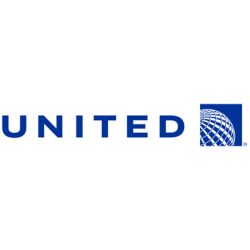Top Class Actions’s website and social media posts use affiliate links. If you make a purchase using such links, we may receive a commission, but it will not result in any additional charges to you. Please review our Affiliate Link Disclosure for more information.

According to United, the “Plaintiff’s entire complaint is based on a false premise.”
The motion to dismiss the United class action lawsuit argues plaintiff Cary David wrongly asserted that the airline failed to disclose to consumers that the Wi-Fi and DirecTV services were limited to flights within the U.S. United further claims the plaintiff only quoted selected passages from the in-flight Wi-Fi advertisement available to consumers from their seatback monitors.
Based on this argument, United has asked the court to dismiss the United in-flight Wi-Fi class action lawsuit.
United’s motion to dismiss the in-flight Wi-Fi class action lawsuit against then claims:
“Those[Wi-Fi service] offers, which control over Plaintiff’s inconsistent allegations, demonstrate that Plaintiff’s claims are fatally deficient and must be dismissed. Specifically, United tells its on-board passengers before they confirm their purchase that ‘Live DIRECTV programming is not available while the aircraft is outside of the continental United States’ and that ‘Wi-Fi service is available over the continental U.S.’ Plaintiff cannot avoid dismissal of her claims by failing to attach or quote in full these dispositive documents.”
Since United allegedly made the limits of the DirecTV and Wi-Fi services clear to consumers, David has not actually alleged a plausible claim under New Jersey law, the airline contends. Furthermore, United argues that state law claims are barred by the Airline Deregulation Act, which bans state law claims over such things like airline company’s rates, routes, and other services. According to United, their in-flight Wi-Fi and DirecTV entertainment fall with the ADA’s definition of an airline service.
The airline company claims the plaintiff attempted to portray one of her in-flight Wi-Fi class action lawsuit claims as an alleged breach of contract, in order to qualify her case as an ADA exception, as certain contract issues are allowed under the statute. However, United argues that this exception does not apply to David’s in-flight Wi-Fi claims, because she is allegedly attempting to “invalidate, rather than enforce, the airline’s self-imposed obligation,” according to the defendant’s motion to dismiss the United in-flight Wi-Fi class action lawsuit.
The plaintiff originally filed her United class action lawsuit back in March of this year, claiming she was only able to use the Wi-Fi services she purchased during her United flight to Puerto Rico for about 10 minutes of her four hour trip. David claims in this in-flight Wi-Fi class action lawsuit that the airline purposefully deceives international flight consumers into purchasing in-flight Wi-Fi and DirecTV services that cannot be used.
The plaintiff alleges that the United website does explicitly state that these in-flight services are only available within the U.S, but that these same services limits are not properly or clearly disclosed on-board United flights.
David is represented by Mark C. Gardy, Jennifer Sarnelli and Orin Kurtz of Gardy & Notis LLP and David L. Eisbrouch of Eisbrouch Marsh LLC.
The United In-Flight Wi-Fi Class Action Lawsuit is Cary M. David, et al. v. United Continental Holdings Inc., et al., Case No. 2:15-cv-01926, in the U.S. District Court for the District of New Jersey.
UPDATE: The United Airlines class action lawsuit was dismissed on Nov. 24, 2015.
ATTORNEY ADVERTISING
Top Class Actions is a Proud Member of the American Bar Association
LEGAL INFORMATION IS NOT LEGAL ADVICE
Top Class Actions Legal Statement
©2008 – 2024 Top Class Actions® LLC
Various Trademarks held by their respective owners
This website is not intended for viewing or usage by European Union citizens.















2 thoughts onUnited Airlines Files Bid to Dismiss In-Flight Wi-Fi Class Action
UPDATE: The United Airlines class action lawsuit was dismissed on Nov. 24, 2015.
United lies about Wi-Fi in the US as well. Ive flown many times to be told that there was service disruption as they would not be able to receive over military bases and such. As far as I know, only Electronic Proving Ground (Fort Huachuca) and WSMR (White Sands Missile Range) have such bans. Further, they do not have the capacity and many times just say to wait that the service goes from seat to seat. I think that your suit only touches the top of the barrel of the issues with Wi-Fi. They have earned billions off of fees but provide no guarantee that they work. The airline industry as they jack up fees, merge, and cut off smaller hubs, needs to focus on providing the service that one pays for. Example, if your bag doesn’t get there or is delayed, they need to AUTOMATICALLY refund the price of the bag fees, I mean, any under industry would go under with this service level. Anyway, this is JMHO. Cheers